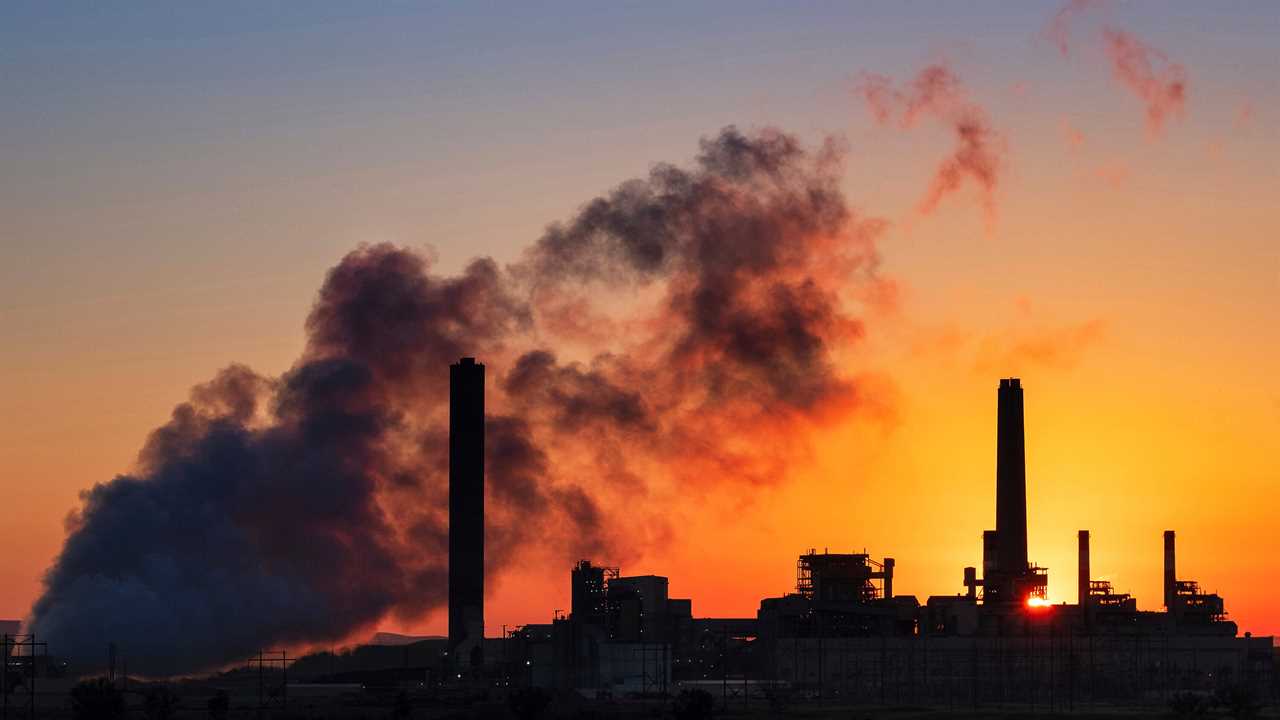
WASHINGTON — The Biden administration will reconsider federal limits on fine industrial soot, one of the most common and deadliest forms of air pollution, with an eye toward imposing tough new rules on emissions from power plants, factories and other industrial facilities.
The announcement, made Thursday by Michael S. Regan, administrator of the Environmental Protection Agency, comes after the Trump administration declined last year to tighten pollution limits, despite warnings from federal scientists and others that doing so could save more than 10,000 lives a year, particularly in urban areas.
Recent scientific studies have also linked fine soot pollution with higher rates of death from Covid-19. Black and brown communities tend to be especially exposed to soot and other air pollution because they are frequently located near highways, power plants and other industrial facilities.
And the Biden administration suggested the move was part of its strategy to address environmental justice.
“The most vulnerable among us are most at risk from exposure to particulate matter, and that’s why it’s so important we take a hard look at these standards that haven’t been updated in nine years,” Mr. Regan said in a statement. He said it was important that the new review “reflect the latest science and public health data.”
By law, the E.P.A. is required every five years to review the latest science and update the soot standard. However, legal experts said that nothing could stop the Biden administration from reviewing and tightening the standard sooner than that.
Mr. Regan said his office would formally review a Trump rule, made final in December 2020, that had declined to clamp down on the tiny, lung-damaging particles known as PM 2.5.
The E.P.A. said it expected to propose a new draft rule by the summer of 2022 and to release a final new rule by the spring of 2023.
Public health advocates cheered the move. “E.P.A’s decision to reconsider the inadequate national limits on particulate matter is good news for the nation’s lung health,” said Harold Wimmer, chief executive of the American Lung Association. “The need is urgent for stronger standards that reflect what the science shows is needed to protect public health.”
Polluting industries are expected to lobby heavily against the imposition of a strict new soot pollution rule.
The current Trump rule retains a standard enacted in 2012 during the Obama administration. That rule limited the pollution of industrial fine soot particles — each about 1/30th the width of a human hair, but associated with heart attacks, strokes and premature deaths — to 12 micrograms per cubic meter. But the law requires that the federal government review the science associated with those standards every five years.
When E.P.A. scientists conducted that mandatory review during the Trump administration, many concluded that if the federal government tightened that standard to about nine micrograms per cubic meter, more than 12,000 American lives could be saved a year.
In a draft 457-page scientific assessment of the risks associated with keeping or strengthening the fine soot pollution rule, career scientists at the E.P.A. estimated that the current standard is “associated with 45,000 deaths” annually. The scientists wrote that if the rule were tightened to nine micrograms per cubic meter, annual deaths would fall by about 27 percent, or 12,150 people a year.
After the publication of that report, numerous industries, including oil and coal companies, automakers and chemical manufacturers, urged the Trump administration to disregard the findings and not tighten the rule.
Douglas Buffington, the deputy attorney general of West Virginia, a heavily coal-dependent state, said at the time the Trump rule was released that tightening the standard “could have been a huge blow to the coal industry.”
Last April, researchers at Harvard released the first nationwide study linking long-term exposure to PM 2.5 with higher Covid-19 death rates.
Andrew Wheeler, the E.P.A. administrator during the Trump administration, said at the time he announced the rule that his decision not to tighten the soot standards had taken an array of scientific evidence into consideration.
“It comes after careful consultation with the agency’s independent scientific advisory board and consideration of over 60,000 public comments,” he said.
However, he said that the Harvard study, which did not complete its scientific peer review process until November 2020, was too recent to take into account.
“We looked at it but it would have been inappropriate to consider it,” he said.
The Biden administration’s decision to review air pollution limits is one in a string of reversals it has made to Trump-era environmental decisions, which were themselves reversals of Obama administration actions. The Trump administration repealed or weakened more than 100 environmental rules or laws, loosening or eliminating rules on climate change, clean air, chemical pollution, coal mining, oil drilling and endangered species protections.
Did you miss our previous article...
https://trendinginthenews.com/usa-politics/cnn-lawyers-gagged-in-fight-with-justice-dept-over-reporters-email-data






